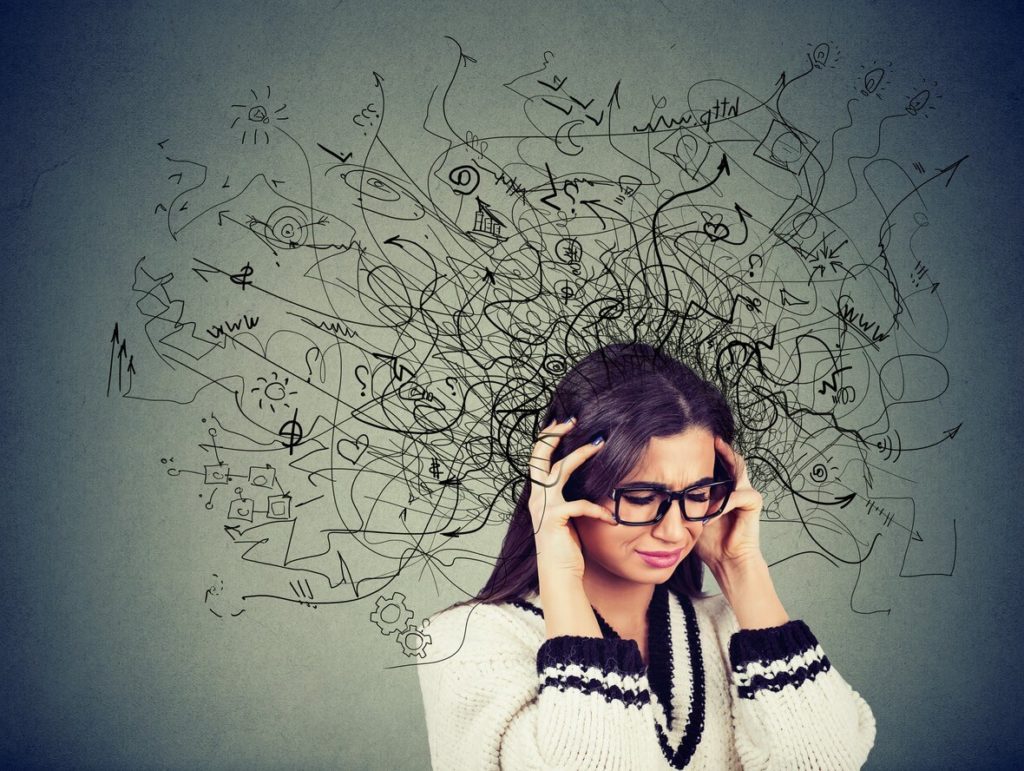Concentration disorder: what solutions?
Written by: Loris Vitry (holistic coach)
Validated by: Cathy Maillot (Osteopath)
Caution: If you have any medical questions or concerns, please speak to your doctor. Even if the articles on this site are based on scientific studies, they do not replace professional medical advice, diagnosis or treatment.

Concentration disorders do not affect a particular class of people.
They affect everyone and at all physiological stages of life.
Whether it is childhood, adolescence or senior citizens.
However, these disorders can have repercussions on your social and professional life.
This article therefore proposes to present the causes linked to concentration disorders and possible solutions to combat concentration disorders.
What are concentration problems?
Concentration is first and foremost the ability of a person to focus their attention on a subject, person or thing.
Concentration disorders therefore refer to the decrease in the ability to concentrate.
These disorders are often short-lived, but in some people they are very common and can last for a relatively long time.
What are the causes of a concentration disorder?
Concentration is your ability to focus your attention on a fact, object, discussion, or activity.
Concentration problems happen when you can’t figure out what is priority, or when your brain is overloaded with information.
Several other reasons, such as stress, can explain concentration problems.
We can cite among others:
General worry, stress, anxiety
As mentioned above, concentration problems are related to the inability to focus your attention on something.
If you have worried about this or that subject, if you have a concern about a given subject, you will have a hard time focusing your attention on something else.
This worry or worry creates stress in you that does not allow you to concentrate.
Abuse of narcotics
The use of drugs, alcohol and other narcotic drugs can cause concentration problems.
These narcotic drugs act directly on the brain and their abuse can damage it and thus create problems with concentration.
Hyperactivity and lack of rest
Some people tend to spend all of their time working tirelessly.
Working takes a lot of brain exercise because it coordinates everything you do.
If you work tirelessly, you are asking your brain to be constantly active which will tire it out and cause disturbances in its level such as those related to concentration.
It is therefore imperative to rest and therefore rest your brain.
Lack of physical activity
Sport plays a big role in your daily life.
It helps you deal with everyday stress, relax you, tidy your head, organize your thoughts, and more.
It is therefore important to do sports from time to time.
Senility
Senility is the weakening of the body and mind produced by old age.
The older you get, the more likely you are to have trouble concentrating.
But it is even more pronounced in people who are not taking care of themselves.
Certain diseases
Diseases like Alzheimer’s, Huntington’s disease, Pick’s disease, and brain trauma are some of the ailments that lead to concentration problems.
What are the solutions to fight against a concentration disorder?
Apart from the disorders linked to diseases, it is possible to find simple and effective solutions to concentration disorders.
Food comes first.
As in all areas, diet plays a very important role in the fight against concentration disorders.
You need a very balanced diet to fight against concentration disorders.
In addition to diet, several other solutions exist for concentration disorders.
Among these we have:
A suitable environment
Concentrating takes a lot of work.
We must therefore find an environment that meets the standards to facilitate this exercise.
A calm environment away from any distraction, any noise as the distraction evades your mind and thoughts and takes you away from your goals.
You have to organize your environment to avoid looking for your work equipment while working.
It is a source of distraction.
Rest
From time to time you need to take a break to recharge your batteries.
Rest allows you to clear your thoughts, to put your thoughts in order, to come away full of energy.
Do sports activities
The goal here is not to do very strenuous activities.
It is enough to devote thirty to forty minutes a day for the sport.
It frees your mind and allows you to relax.
You can also practice activities like meditation and yoga to reduce your daily stress.
Scheduling tasks by priority
The prioritization of tasks allows you to prioritize one activity over another and thus makes your work easier.
Once the activities are planned you will have your attention on each one and will know what to do and when to do it.
Find a source of motivation
Motivation will give you determination.
Once you are determined, you have all the energy and strength to complete the task assigned to you.
A motivated and determined mind is a solution against concentration disorders.
Use of tonics
Some people to increase their ability to concentrate use tonics especially in the case where the lack of concentration becomes very frequent.
This method is good but if you overdo it can become an addition and without the tonics you will have a hard time concentrating.
The use of these must therefore be controlled.
Despite all the techniques mentioned above to fight against concentration disorders, breathing plays a big role.
Faced with a situation of forgetfulness or a lack of concentration, you must try to control your breathing.
Breathe in and out strongly while focusing your attention on the subject you want to remember.
In short, we can say that concentration disorders are mostly linked to a lack of relaxation.
To avoid them, you must therefore practice relaxing exercises to ventilate your brain, and thereby facilitate concentration.
Concentration problems are not necessarily linked to an illness but rather to a lack of organization.
However, some disorders are the cause of various diseases, if you are concerned, turn to a professional.
Continue reading:
Fusional love: risk of breaking up as a couple?

